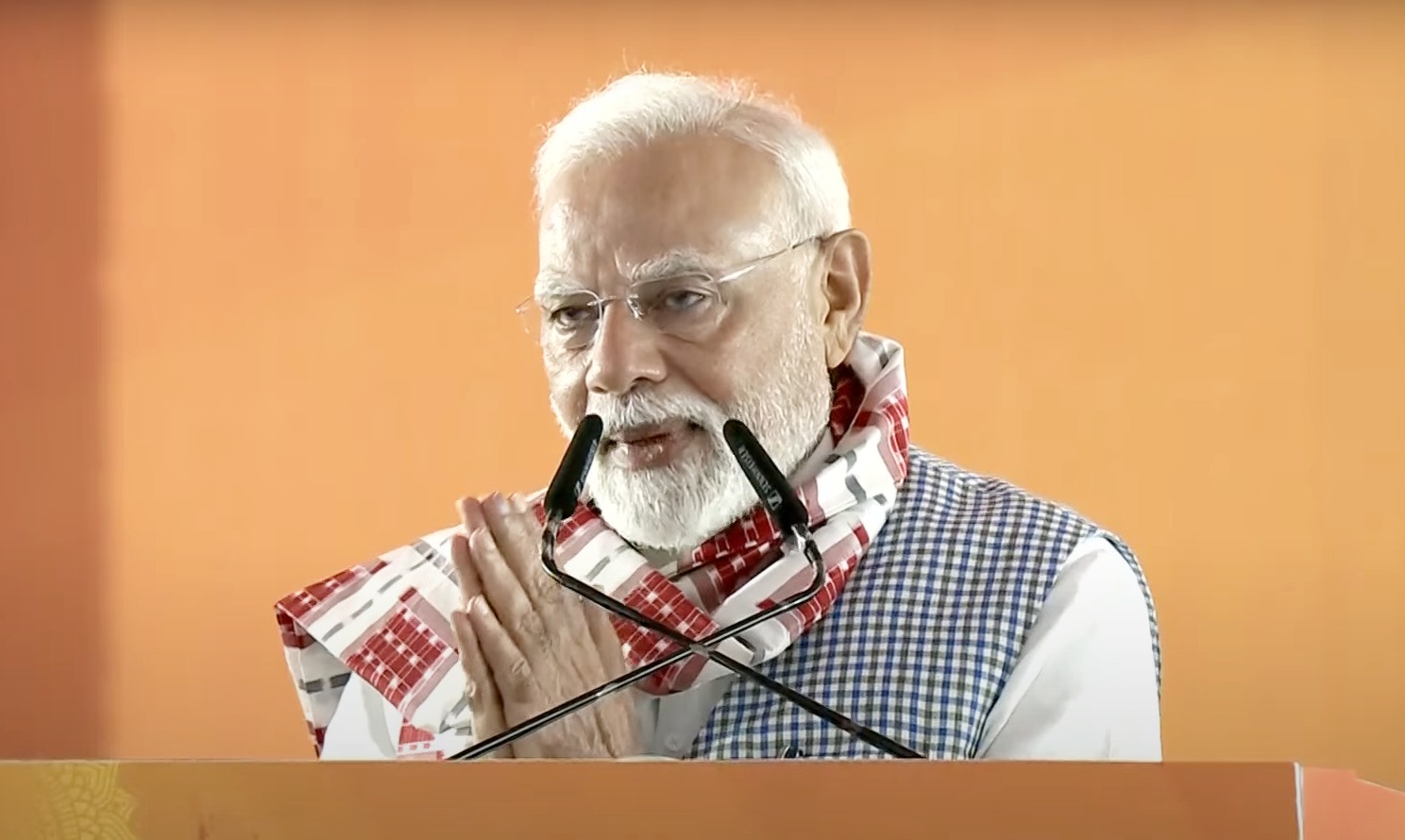Prime Minister Narendra Modi on Friday inaugurated and laid the foundation stone of multiple development projects worth over ₹18,600 crore in Bhubaneswar, Odisha, commemorating the completion of one year of the state’s first BJP-led government. The projects span critical sectors such as drinking water, irrigation, agriculture, health infrastructure, rural roads and bridges, highways, and a new railway line.
Addressing a state-level event marking the anniversary, PM Modi hailed June 20 as a historic day, celebrating not just a government’s milestone but the embodiment of good governance focused on public service and trust. He congratulated Chief Minister Mohan Charan Majhi and his team for their work, which he said has injected fresh momentum into Odisha’s development.
Describing Odisha as a “shining star” of India’s cultural heritage, PM Modi highlighted the state’s historical contribution to Indian civilization. He noted that the combination of development and preservation of heritage has become the cornerstone of India’s growth, with Odisha playing an increasingly vital role.
Coinciding with preparations for the Rath Yatra of Lord Jagannath, the Prime Minister said that spiritual reverence and development are progressing hand in hand. He praised the state government’s prompt action in opening all four gates of the Jagannath Temple and initiating access to the Ratna Bhandar, underscoring the act as a respectful gesture toward millions of devotees. PM Modi also revealed that he declined an invitation from the US President to visit the United States post the G7 Summit in Canada, opting instead to be present in Odisha on this spiritually significant day.
In a sharp critique of previous governments, PM Modi said that earlier models of governance lacked transparency and development was often delayed, obstructed, or derailed. Contrasting that with the BJP’s approach, he stated that the past decade has seen states like Assam and Tripura—formerly riddled with instability and neglect—undergo social and economic transformation. He added that Odisha, too, had long struggled with corruption, poor infrastructure, and neglected rural areas, but is now on a promising developmental path.
The Prime Minister emphasized the strength of a dual model of governance where both Union and state governments work in synergy. Citing the health sector, he noted that nearly 3 crore people in Odisha now benefit from the combined coverage of the Ayushman Bharat and Gopabandhu Jan Arogya Yojanas, making free treatment accessible even outside the state. Similarly, over 23 lakh senior citizens are now eligible for free treatment up to ₹5 lakh under the Pradhan Mantri Vaya Vandana Yojana.
For farmers, he stated that Odisha’s agricultural community now receives dual benefits under both central and state schemes, including improved procurement prices for paddy. Earlier, many central government initiatives failed to reach the state’s population, but the current administration has ensured their successful implementation across various sectors.
A key focus of PM Modi’s address was the empowerment of Odisha’s tribal population. He lamented that for decades, tribal communities were politically exploited, marginalized, and trapped in cycles of poverty and violence. He noted that in 2014, over 125 tribal-majority districts in the country were affected by Naxal violence, a number that has now dropped to fewer than 20. He credited this to strict action against violence and development initiatives in tribal regions.
PM Modi outlined two major national schemes dedicated to tribal development. The Dharati Aaba Janjatiya Gram Utkarsh Abhiyan is bringing infrastructure and services to over 60,000 tribal villages nationwide, including the construction of 40 residential schools in 11 districts of Odisha. The second, the PM Janman Yojana, inspired by Odisha and guided by President Droupadi Murmu, targets the particularly vulnerable tribal groups (PVTGs), funding development across remote tribal hamlets.
The Prime Minister also highlighted the government’s attention to Odisha’s fishing communities. For the first time, fishermen are benefiting from the Kisan Credit Card facility under the PM Matsya Sampada Yojana. Additionally, a special ₹25,000 crore central fund will support coastal communities and youth entrepreneurship in the state.
Calling this the era of Purvoday, PM Modi said Eastern India will power 21st-century India’s growth. He pointed to rapid industrial expansion from Paradip to Jharsuguda and large-scale infrastructure investments to boost Odisha’s mineral and port-led economy. Mega projects like a dual-feed cracker unit in Paradip, an oil storage facility in Chandikhole, and an LNG terminal in Gopalpur are turning Odisha into a future petrochemical hub. He noted that nearly ₹1.5 lakh crore has already been invested in these sectors.
PM Modi emphasized the government’s long-term vision beyond five-year targets. He mentioned that a special “Vision 2036” plan has been drafted, marking 100 years of Odisha as India’s first linguistic state, alongside “Vision 2047” for India’s centenary of independence. He expressed confidence in the youth of Odisha to achieve these ambitious goals.
Among the key announcements made during the event, the Prime Minister flagged off new train services connecting Boudh district to the national railway network for the first time and launched 100 electric buses under the CRUT urban transport system. He also released the Odisha Vision Document and launched the ‘Baraputra Aitihya Gram Yojana’ to preserve the heritage of iconic Odia personalities through living memorials.
Modi also honored several women achievers from Odisha, celebrating more than 16.5 lakh “Lakhpati Didis” as symbols of prosperity and self-reliance.
The event was attended by the Governor of Odisha, Hari Babu Kambhampati, Chief Minister Mohan Charan Majhi, Union Ministers Jual Oram, Dharmendra Pradhan, and other dignitaries.










